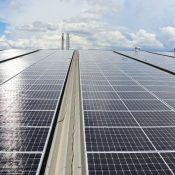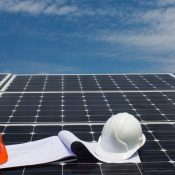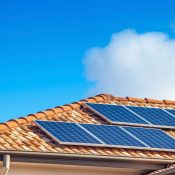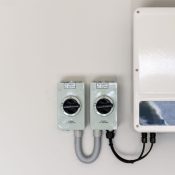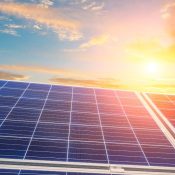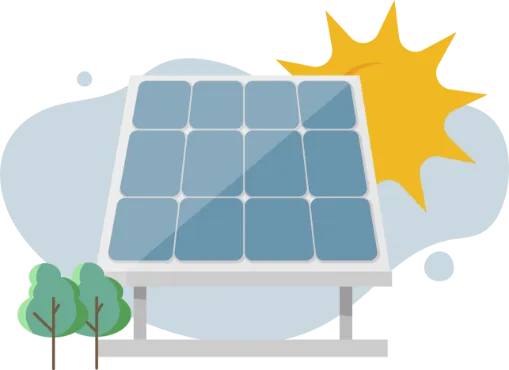What is Solar Energy?
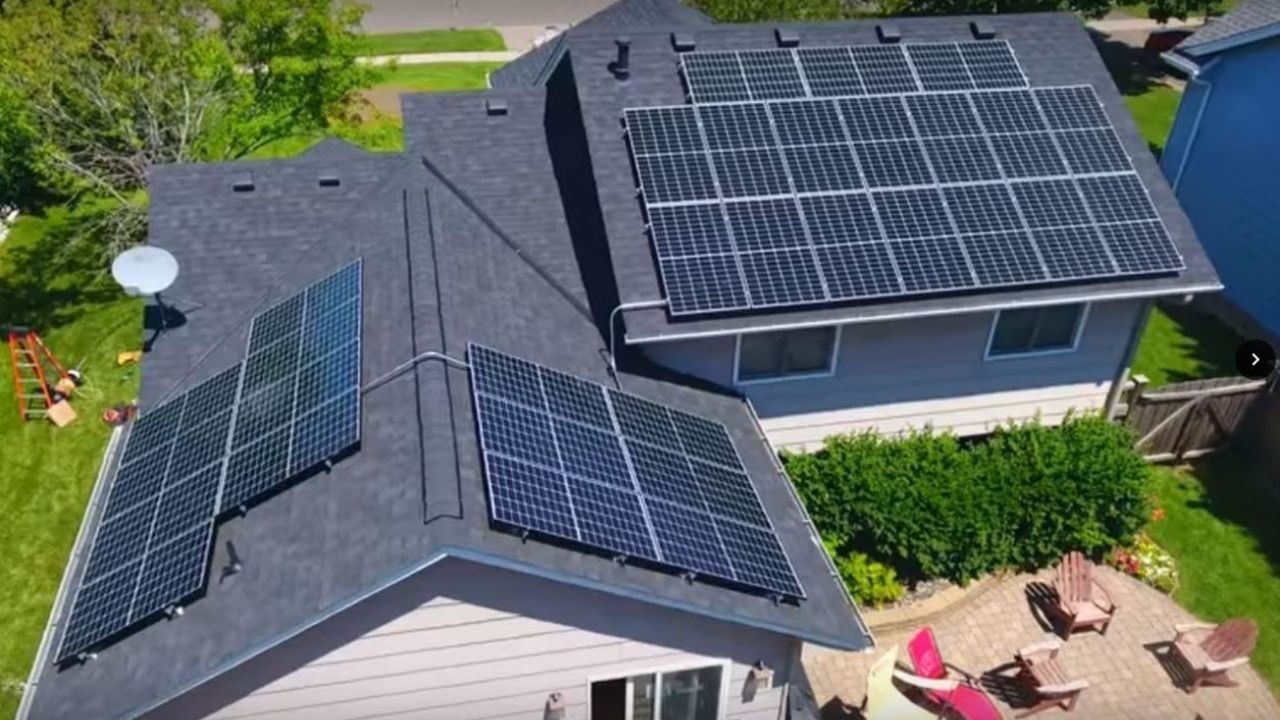
Solar power is becoming an increasingly popular choice for homeowners and businesses seeking a sustainable and cost-effective energy solution. By utilising the energy of the sun, solar panels provide clean electricity while helping to reduce energy bills and lower reliance on traditional fossil fuels.
Whether it’s powering your home, heating water, or generating surplus energy to feed back into the grid, solar systems offer a wide range of benefits. With advancements in technology, solar panels are more efficient and reliable than ever, even performing well in cloudy or rainy conditions.
In this blog, we’ll explore what is solar energy? And its key advantages of solar power and how it can benefit you, both financially and environmentally.
What is Solar Energy?

What is solar energy? It is the process of converting sunlight into usable electricity. This is achieved using solar panels, which are made up of transparent photovoltaic (PV) glass and PV cells that transform sunlight into electricity.
In addition to generating electricity, solar energy can be harnessed as thermal energy through concentrators and reflectors. The electricity produced can power homes, farms, and businesses of all sizes, while thermal energy has applications like heating water or homes, reducing reliance on gas boilers and immersion systems.
Solar energy is also used for various purposes, such as powering security systems, outdoor lighting, electric fences, and aerating garden ponds.
How Does Solar Power Generate Electricity?

Solar panels, once installed on a roof, are connected to an inverter, and sometimes a battery. When sunlight strikes the solar panels, it activates an electric current within the PV cells. This current, known as direct current (DC), needs to be converted into alternating current (AC) – the form of electricity used in homes and appliances.
This conversion from DC to AC is performed by an inverter. The electricity then flows through the inverter, becoming usable power. Depending on the system, this energy can power appliances, be stored in batteries, or be sent back to the grid.
There are three main types of inverters:
- String Inverters: Used in most systems.

- Hybrid Inverters: Capable of storing excess energy in batteries or feeding it back into the grid.
- Micro Inverters: installed on individual panels, though less common in Ireland.
In Ireland, most solar systems are connected to the grid, as they usually cannot meet all energy needs throughout the year. With a microgeneration tariff, excess electricity sent back to the grid earns you credits on your energy bill.
What Are The Different Types Of Solar Panel Technologies?
There are two main solar technologies used to generate electricity from sunlight:
Concentrated Solar Power (CSP)
CSP focuses sunlight to produce heat, which drives a generator. This technology is common in sunny regions but is less suited to Ireland.
Solar Photovoltaics (Solar PV)
Solar PV panels are more popular in Ireland due to their affordability, reliability, and suitability for the climate. The three main types of solar PV panels available in Ireland are:
- Thin-Film Panels: Made by spraying a thin semiconductor layer on glass, plastic, or metal. These lightweight, flexible panels have a lifespan of 10–20 years.
- Mono-Crystalline Panels: Made from a single silicon crystal, they are the most efficient and durable but also the most expensive. Popular options like Peimar panels use advanced technology to maximise energy output, ideal for limited spaces or tough conditions.
- Poly-Crystalline Panels: Created by melting silicon fragments, they are less efficient but more affordable. Their matt black finish makes them visually appealing in Irish settings.
Do Solar Panels Work on Cloudy and Rainy Days?
This is one of the most frequently asked questions about solar energy in Ireland. Fortunately, modern solar panels are designed to function efficiently even on cloudy, rainy, or wet days.
While solar panels perform best in direct sunlight, they can still generate power during overcast conditions since solar cells rely on light rather than heat. Interestingly, research from the US indicates that excessive heat can reduce the efficiency of solar panels.
Modern solar panel technology undergoes rigorous testing to ensure reliability and efficiency. For panels to be certified for installation in Ireland, they must pass stringent tests, including dump heat, thermal cycling, and humidity freeze assessments.
What Are the Advantages of Using Solar Power?

Discover four key benefits of solar energy that make it a smart and sustainable choice for your home or business.
1. Renewable Energy Source
Solar power is a sustainable energy option that doesn’t run out. Unlike fossil fuels, solar energy can be harnessed anywhere in the world, making it a universal solution.
2. Reduced Electricity Bills
Installing a solar energy system can significantly lower your energy costs by meeting your electricity needs. The savings depend on the system size and your home’s energy usage. According to SEAI recommendations, a solar system should ideally cover up to 70% of your annual electricity consumption.
Our solar installers provide a detailed report for your home using specialized software. This analysis considers factors such as location, system size, and roof orientation. While south-facing roofs are ideal, east-west orientations also deliver excellent results.
3. Earnings from Surplus Energy
When your solar system generates more electricity than you need, the excess energy is sent to the national grid. If you’re on our Microgen Export plan, you’ll receive credits on your energy bill for this surplus electricity.
If your system doesn’t generate enough energy to meet your needs, the grid can supply additional power to cover the shortfall.
4. Low Maintenance Costs
Solar systems are highly durable and require minimal maintenance since they have no moving parts like wind turbines. The inverter and batteries are the only components that may need replacement every 5–10 years.
Lower maintenance costs make solar systems an economical choice, ensuring long-term savings.
Final Thoughts!
Solar energy is a clean, renewable, and cost-effective solution for powering homes and businesses, offering significant financial and environmental benefits. From reducing electricity bills to earning credits for surplus energy and enjoying low maintenance costs, solar power is a smart investment for the future. With modern solar panels performing efficiently even in less sunny conditions, switching to solar has never been more accessible.
Ready to explore how solar energy can benefit you? Contact Going Solar today for expert guidance and customised solutions to your solar energy needs. Take the first step towards sustainable living with us!
Planning a switch to solar energy?
Contact Going Solar now and Get Free Advice & Quote Within Minutes!
Frequently Asked Questions
Contact Going Solar Now!
Joe Brennan
Founder @ Going Solar
Joe Brennan, the founder of Going Solar, is dedicated to making solar power mainstream in Ireland and meet SEAI objectives. With a focus on affordability and sustainability, he is bringing renewable energy solutions to homes, reducing costs & environmental impact.
Recent Posts

